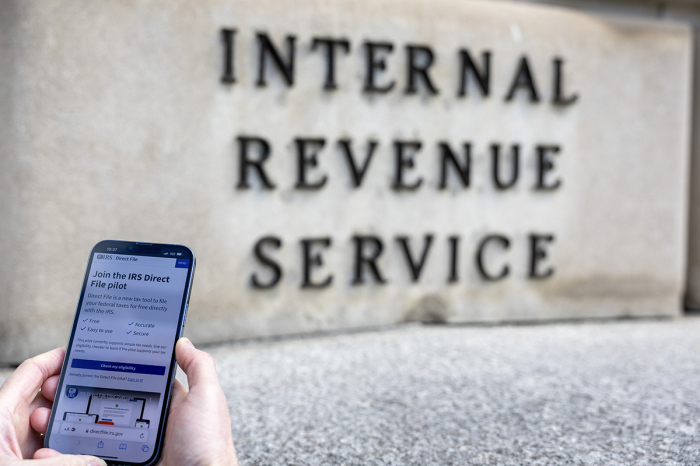Unconstitutional: Religious broadcasters, churches file lawsuit against Johnson Amendment

A new lawsuit accuses the Internal Revenue Service of selectively enforcing a law intended to prevent tax-exempt, nonprofit organizations, including churches, from weighing in on politics as it seeks a ruling declaring the law unconstitutional.
National Religious Broadcasters and Intercessors for America, along with the Texas-based Sand Springs Church and First Baptist Church Waskom, filed a complaint in the United States District Court for the Eastern District of Texas Tyler Division on Wednesday.
The lawsuit, which names the IRS and its Director Danny Werfel as defendants, begins by explaining that “The Internal Revenue Code [‘IRC’] prohibits only one class of nonprofit organizations from communicating their views about political candidates—those organized under § 501(c)(3) of the IRC.”
Attributing the current status of federal law to “language added to the IRC in 1954 and known widely as the Johnson Amendment,” the complaint contends that “Churches are placed in a unique and discriminatory status by the IRC.”
“The IRC places them automatically within the ambit of 501(c)(3) and thereby silences their speech, while providing no realistic alternative for operating in any other fashion,” the suit adds.
The Johnson Amendment proclaims that “Corporations, and any community chest, fund, or foundation, organized and operated exclusively for religious, charitable, scientific, testing for public safety, literary, or educational purposes, or to foster national or international amateur sports competition (but only if no part of its activities involve the provision of athletic facilities or equipment), or for the prevention of cruelty to children or animals” can obtain tax-exempt status.
However, such organizations are only eligible for tax-exempt status “as long as they do not participate in, or intervene in (including the publishing or distributing of statements), any political campaign on behalf of (or in opposition to) any candidate for public office.” The groups are also prohibited from “carrying on propaganda, or otherwise attempting, to influence legislation.”
Identifying the plaintiffs as “religious nonprofit organizations in the business of communicating their views to the public” that “desire to communicate their views about candidates’ positions that are relevant to the issues Plaintiffs care about,” the lawsuit insists that “They would do so but for the Johnson Amendment.”
The complaint describes the longstanding federal law as a violation of the Free Speech and Free Exercise Clauses of the First Amendment to the U.S. Constitution as well as the Due Process Clause of the Fifth Amendment and the Religious Freedom Restoration Act. It seeks a ruling invalidating the Johnson Amendment in addition to the payment of reasonable attorney’s fees.
Most of the document contains examples of how other nonprofit organizations such as newspapers and college publications as well as progressive faith-based groups and churches routinely make political statements and endorse political candidates with impunity.
“There is no apparent rational basis for determining which 501(c)(3) organizations will be permitted to proceed, and which will be penalized for violating the Johnson Amendment,” the complaint asserts. “The IRS acts in an arbitrary and capricious manner vis-à-vis electoral statements by nonprofit organizations. The IRS operates in a manner that disfavors conservative organizations and conservative, religious organizations in its enforcement of § 501(c)(3). This is a denial of both religious freedom and equal protection.”
The complaint outlines examples of what it describes as “IRS targeting conservative nonprofits for unfavorable treatment” to back up its assertion that the federal government agency “operates in a manner that disfavors conservative organizations and conservative, religious organizations.” It includes a quote from a 2017 report compiled by then-U.S. Attorney General Jeff Sessions concluding that “during the last Administration, the IRS began using inappropriate criteria to screen applications for 501(c) status.”
“These criteria included names such as ‘Tea Party,’ ‘Patriots,’ or ‘9/12’ or policy positions concerning government spending or taxes, education of the public to ‘make America a better place to live,’ or statements criticizing how the country was being run,” the report stated. “It is also clear these criteria disproportionately impacted conservative groups.”
According to the report, “As a result of these criteria, the IRS transferred hundreds of applications to a specifically designated group of IRS agents for additional levels of review, questioning and delay. In many instances, the IRS then requested highly sensitive information from applicants, such as donor information, that was not needed to make a determination of tax-exempt status.”
The lawsuit also provided an example of how “conservative, religious organizations” have faced sanctions from the IRS, noting how Pastor Gary Hamrick of Cornerstone Chapel in Leesburg, Virginia, ended up paying a fine after giving a sermon comparing the political positions of the two major political parties ahead of the 2020 presidential election and how they lined up with biblical teaching.
Hamrick’s remarks included a statement declaring, “you don’t have to vote for Trump” while maintaining that a vote for Democrat candidates ran afoul of biblical principles.
A push to repeal the Johnson Amendment has gained steam in recent years. In his 2016 acceptance speech at the Republican National Convention, then-presidential candidate Donald Trump vowed to repeal it if he won the 2016 presidential election. While Trump instituted an executive order directing the IRS “not to unfairly target churches and religious organizations for political speech” shortly after taking office in 2017, the effort to repeal the Johnson Amendment in Congress failed.
Ryan Foley is a reporter for The Christian Post. He can be reached at: ryan.foley@christianpost.com





























